Stars have emerged in unexpected places during the dark night of the pandemic. Perhaps nowhere more than in homes with school-age kids.
Repeated government school building closures sent kids home. And for months board-provided schooling wasn’t offered even in a virtual format. Compulsory education laws stating that kids must attend school or be educated at home or elsewhere (as, for example, in Ontario’s Education Act) would be observed, but only if parents could pull it off.
When the Ontario government announced in August 2018 that it would deliver an education system that put the rights of parents first it could not have anticipated that within 18 months it would be joining a global movement of testing parental primacy in education.
But it did. And there will be no turning back.
Over the last decades, our societies haven’t spent a lot of time reflecting on the primacy of parents in their kids’ lives. Instead, the state has increasingly displaced many familial roles and acquired a taste for routinely leaving parents on the sidelines, particularly with respect to education.
Yet when government backed away and could no longer offer schooling, it sent kids home. Governments turned to parents. It didn’t turn to the military as it did in long-term care or even to professional educators. Governments turned to parents for the services it had become accustomed to providing. In some places, provincial budgets even allotted parents a few hundred dollars for their efforts.
This isn’t shocking. And we wouldn’t have it any other way. None of us would have preferred instead to institutionalize our kids for a year or two in some alternative residential location to keep them “safe” and ensure they continued their government-offered education.
Yet, on the other hand, this impulse of government to turn to parents in its time of need and the subsequent response of parents to this challenge provides an opportunity to reflect on the natural rights and responsibilities of parents. Perhaps even more importantly it highlights new trends in K-12 education.
If we, and our 21st century democratic governments, know that during times of trauma the best place for our kids is at home with their parents, looking ahead to times of calm, we can no longer continue on the pre-pandemic trajectory of increasingly excluding parents from the educational equation.
Growth in K-12 educational alternatives shows that sidelining parents will simply no longer be an option.
The 2020 founder of Learning Pods Canada, Rachel Danzinger, recently discussed the growth in a new alternative approach to education delivery. Small groups of students, many de-enrolled from formal school, are meeting with facilitating educators, usually hired by their parents, to pursue their education.
According to Danzinger, podding familiarized parents with the attainability of excellent education outside of government-provided schooling. As the parents became more acquainted with alternative curricula and began sharing resources within and across pods, some realized insufficiencies in provincial curricula and some, for the first time, became aware not only of the ideologies embedded in government programs but of how their child was not attaining to their full potential.
Other parent-led approaches to education, including more traditional forms of homeschooling, also grew. According to Peter Stock at the Canadian Centre for Home Education homeschooling in Canada doubled during the pandemic, from estimated rates of somewhere between one and two percent. Twice as many parents as one year earlier did not enrol their children in a school and officially became the primary educator in their kids’ lives.
Affordable independent schools also grew. One association of Christian schools, Edvance, found an average of 10 percent growth in enrolments across its member elementary schools. According to Amanda Dervaitis of the Ontario Federation of Independent Schools, micro-schooling — small registered private schools of one or two dozen students — also grew in number, sometimes ironically attracting so many students that their micro definition stood to be tested.
The pandemic has revealed parental potential and preference for the education of their kids. When presented with the need and given the options, many parents find small, local, caring, community-based educational alternatives preferable to the larger-scale, anonymity of centrally-designed, bureaucratically-delivered government school options.
The cultural shift in education towards engaged parents is not inconsistent with law in Canada, both legislative and jurisprudential, that provides extensive protection for parental rights in directing and determining their children’s education. Only in the most extreme of cases will the state intervene and supersede a parent’s wishes as parents are presumed to be acting in the best interests of their children and the onus of proving otherwise is on the state seeking to intervene.
Alberta’s Education Act gives a statutory example. Its preamble states that “parents have a prior right to choose the kind of education that may be provided to their children”.
Examples from jurisprudence abound. As recently as 2017 the Ontario Court of Appeal stated that “the right of parents to care for their children and make decisions for their well-being, including decisions about education, is primary, and the state’s authority is secondary to that parental right…The law is clear that the authority of the state to educate children is a delegated authority.”
The pandemic gave parents a taste of being active participants in their kids’ education.
The most famous of the many international conventions and covenants that indicate the primacy of parents is the Universal Declaration of Human Rights (1948) which reads “parents have a prior right to choose the kind of education that shall be given to their children” and protects their freedom to “manifest…religion or belief in teaching.”.
Recognition of the primacy of parents in their children’s education is not just in the realm of legislators, the courts, or international bodies, but also plays a central role in religious and indigenous societies. Indeed, sacred texts such as the Torah and the Book of Proverbs from the ancient world, the words of the prophet Mohammed from the first millennium of the common era, and more recently the Vatican II declaration Gravissimum educationis all recognize parents as the primary and principal educators of their children.
Indigenous peoples also give primacy of place to parents in education and child-raising. The report of the recent Truth and Reconciliation Commission gives insight in volume five. “Many students were permanently damaged by residential schools. Separated from their parents, they grew up knowing neither respect nor affection. A school system that mocked and suppressed their families’ cultures and traditions destroyed their sense of self-worth,” the report reads.
Taken together — this extensive codification of parent primacy and our recent pandemic experience that naturally reverted education back within the purview of parent—what will it mean going forward?
While few would appeal for 19th century education left entirely to the home-setting of field, workshop, or hearth, the 20th century vision for a universal, one-size-fits-all education is now over.
The pandemic gave parents a taste of being active participants in their kids’ education. If they were disappointed with the centralized, bureaucratized, standardized approach to education and the curriculum on offer, the experience during the pandemic has reminded them of what was naturally theirs all along.
The veil of the professionalized, unionized world of education was lifted and many lived into what came naturally to them — working much more collaboratively with their child’s teacher or in many cases de-enrolling and taking on the responsibility themselves. Designing learning experiences and settings where their kids could thrive became familiar and attainable.
The coming cultural shift in education towards engaged, rather than excluded, parents stands on a strong foundation — in law, in history, and in practice.
And as we stand on the cusp of new frontiers in education, opportunities for innovation and diversity are endless. Yet one thing is clear: our new guiding stars are parents.
Recommended for You

Canadians lost confidence in Parliament at end of Justin Trudeau’s prime ministership: Statistics Canada
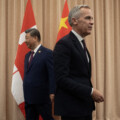
‘All risk and no reward’: The Roundtable on why Carney’s China trip is a really big deal
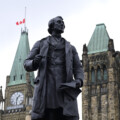
Mark Carney’s spelling and the ghost of Sir John A. Macdonald
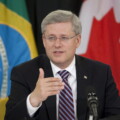
Harper was right—Canadian foreign policy should prioritize the Americas: The Weekly Wrap

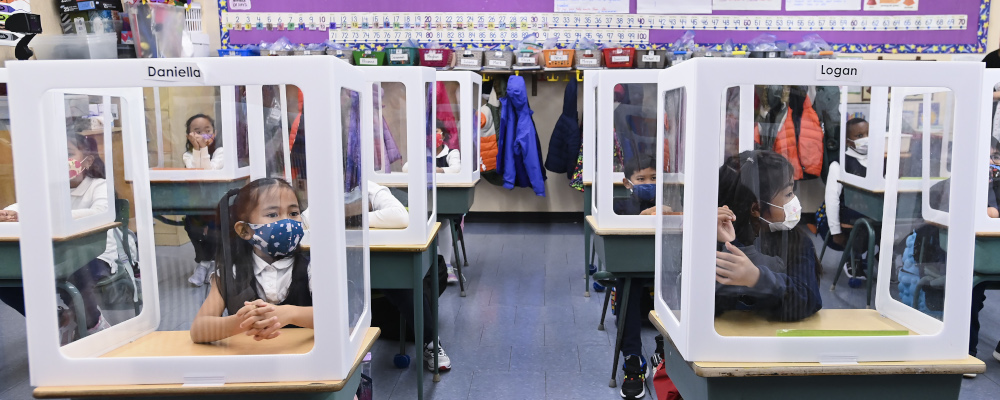

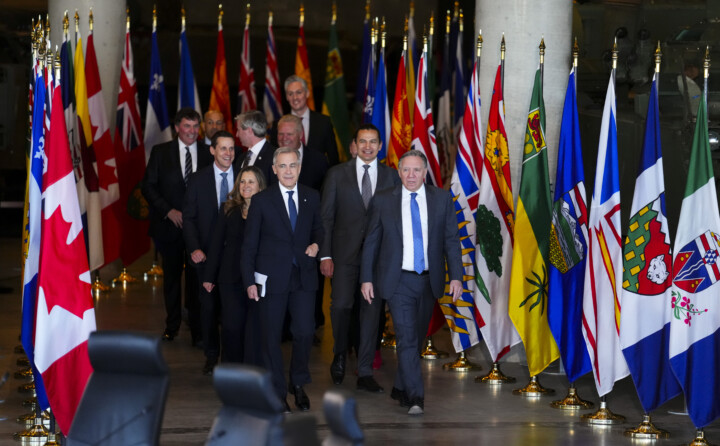

Comments (0)